| South Africa is serious about encouraging further Chinese investment, especially in key areas like the beneficiation of mineral resources, improving industrial capacity, enhancing agro-processing and energy, said the country's President Jacob Zuma. He made the remarks on December 5 at the South Africa-China Business Forum in Beijing, during his state visit. A platform for Chinese and South African businesses to discuss cooperation in sectors like finance, energy, manufacturing, mining and capital equipment, the forum was attended by South African business leaders and their counterparts from 150 Chinese enterprises.
President Zuma and some of his ministers shared their views with ChinAfrica on trade and investment opportunities in South Africa and how to build a sustainable bilateral economic partnership for mutual development. Excerpts of their views follow:
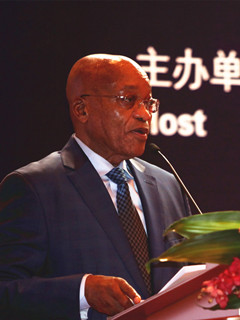
Jacob Zuma
South African President
We are pleased that China is keen to share lessons and cooperate with us in the implementation of our ambitious blue economy program, Operation Phakisa. This program will initially be implemented in two sectors - the ocean economy and health, especially clinics. We chose the ocean economy with good reason. South Africa's coastline, approximately 3,924 km long, is yet relatively unexplored in terms of its economic potential. In 2010, oceans contributed approximately 54 billion rand ($4.66 billion) to the economy and accounted for 316,000 jobs.
To tap into them, the government has identified four priority sectors: marine transport and manufacturing activities such as coastal shipping, trans-shipment, boat building, repair and refurbishment; offshore oil and gas exploration; aquaculture and marine protection services; and ocean governance. It is estimated that the oceans have the potential to contribute approximately 177 billion rand ($15.26 billion) and create up to 1 million direct jobs. We look forward to working with China in moving Operation Phakisa forward.
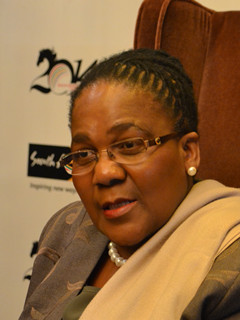
Elizabeth Dipuo Peters
Minister of Transport
We are very excited about the agreement signed between Transnet, South Africa's state-owned freight transport and logistics company, and CSR Zhuzhou Electric Locomotive, which is actually a 50-billion-rand ($4.7 billion) investment in South Africa to improve Transnet's freight logistics. It's good for South Africa, both for job creation and poverty reduction. Transport and infrastructure are keys to any economy. They unlock the economy. China's investment in transport and infrastructure will help us gradually move South Africa forward. One of the things we are focusing on now is the blue economy. How do we make it possible for South Africa to grow its potential for port infrastructure development, to invest in ship building and repair, so that we grow big in shipping and maritime transport?
We agree with Chinese Minister of Transport Yang Chuantang that we will establish a working group of officials between our two departments. The group will review the memorandums of understanding (MOUs) related to the four modes of transport: aviation, maritime, rail and road. The MOUs will give us the terms and conditions for working together and going forward. Within a few months, we will be able to come back to sign these MOUs that will unlock our relationship in terms of transport.
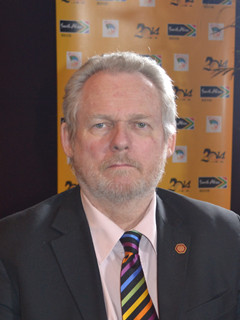
Rob Davies
Minister of Trade and Industry
[We both] agree that a trade imbalance between South Africa and China exists. South Africa's exports are dominated by mineral commodities and unprocessed commodities. Value addition and promotion of more value-added products is an important part of the cooperation. We have been working with the support of China's Ministry of Commerce (MOFCOM) on value-added trade missions. We have been bringing in two trade missions supported by the MOFCOM, exhibitors and people who can supply value-added products. We have seen some progress as a result of that. The other thing we have agreed on is buying missions. Buyers from China will come to South Africa.
The other important dimension is a dynamic thing. It's about supporting investment so that it's going to help industrialize or reindustrialize our country. Some of [it involves] infrastructure. We are looking at, for example, cooperation in railways. We need to improve and upgrade our railways as part of making our economy more productive. Energy is [also] a massive issue in our country. We have to bring about these structural changes, [to] use the investment we make as a tool for industrial development. We really need to move further and faster along the track we have been talking about. That's the understanding of the Five-to-10 Years' Strategic Plan on Cooperation. Chinese investment is still not as high as investment from Europe, the United States and so on. There could be a significant increase in investment.
The biggest challenge in South Africa is the energy situation. We need a large quantum of affordable energy. For the next two years it will be tight. A medium-term challenge is skills development. For instance, now the mining industry has passed its peak and the technology has changed. Jobs have been created for people with skills. We don't have enough skills development in our country. So everyone who comes [to South Africa] is encouraged to get involved in skills development. We say to people, we are not looking for you to just come to do the job and leave, you must come and transfer skills. Those are the two challenges on the South African side.
It's really about getting to know China. [Despite] language barriers and the distance, for those who are prepared to make an effort, the journey is worthwhile.
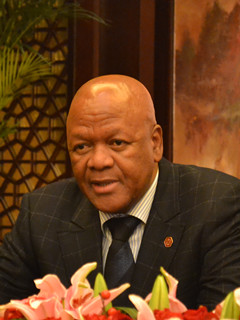
Jeff Radebe
Minister in the Presidency
The cooperation between China and South Africa is in furtherance of achieving the objectives of the National Development Plan (NDP). Vision 2030 requires foreign direct investment. So China being our biggest trading partner, we are strengthening our relationship. It means our objective of Vision 2030 - reducing unemployment, inequality as well as poverty - will be reached. We are very excited that our NDP will be reinforced by the strengthening and deepening of our economic relations.
The year 2014 was the Year of South Africa in China, while 2015 is the Year of China in South Africa. We have planned events in South Africa to celebrate this great occasion. It is a 12-month program indicative of the deepening of relations because these are not only the relations between the governments but also people-to-people interactions. It's of vital importance so that we can understand each other's cultures and philosophies.
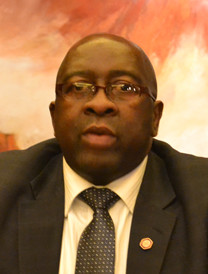
Nhlanhla Musa Nene
Minister of Finance
There are already working relations with China. The financial institutions are also working together. We had a meeting with China Development Bank [officials] on a number of partnerships, Chinese financial institutions' participation in infrastructure development, energy, cross-border investments and also the use of our financial systems by China [while] moving into Africa. We provide a platform for the financial institutions to be able to transact in the region and on the continent.
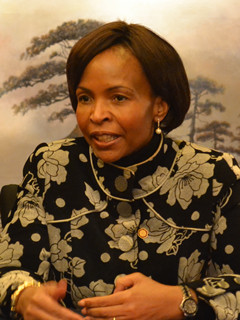
Maite Nkoana-Mashabane
Minister of International Relations and Cooperation
During this trip, we signed a Five-to-10 Years' Strategic Plan on Cooperation [with China]. We look forward to the next five years' implementation of the undertakings we have made on our strategic partnership with China. We had a very solid historical and political relationship during our struggle for freedom. In this phase, we are looking at how we can work with China to implement our NDP 2030, which is linked to Agenda 2063 of the African Union [a strategy to optimize the use of Africa's resources for the benefit of all Africans]. It is also leaning on China's long-term planning and implementation of plans. We are looking at how we [can] work with China for economic emancipation through infrastructure and integration of our economy with the rest of the African continent now that we are the members of BRICS (Brazil, Russia, India, China and South Africa) and other international forums like G20; how we can encourage more investment into South Africa and the rest of the continent; how we can trade more with each other. |